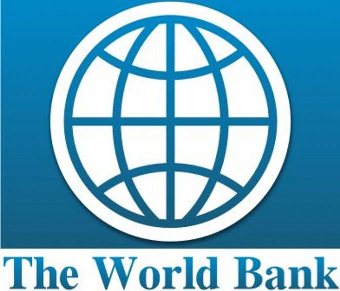The World Bank Group’s Board of Directors recently endorsed a new four-year strategy aimed at achieving greater prosperity for Sri Lanka and its people. The strategy emphasizes greater macro-economic stability, creating more and better jobs, improving Sri Lanka’s global competitiveness, investing in under-served people and areas, and promoting green growth.
The World Bank Group’s Country Partnership Framework (CPF) for Sri Lanka for the period ending June 2020, reflects the development vision of the government. It draws on the priorities identified in an earlier World Bank analysis of the opportunities and challenges facing the country’s economy, Systematic Country Diagnostic. The areas identified for support are those in which the World Bank Group (WBG) has a comparative advantage and where there are opportunities to leverage the private sector to provide sustainable solutions to the country’s development challenges. Through online consultations and face to face consultations in Matara, Jaffna, Batticaloa, Kandy and Colombo, the general public was able to participate in shaping the strategy.
“The Country Partnership Framework for Sri Lanka is prepared in close collaboration with government counterparts and through an extensive consultation process with beneficiaries,” said Françoise Clottes, outgoing World Bank Country Director for Sri Lanka and the Maldives. “This CPF will bring support, through knowledge work and investments, to the implementation reform agenda of the Government of Sri Lanka, while advancing the objectives of greater competitiveness, inclusion and sustainability.”
The CPF’s policy reform emphasis mirrors the strong policy reform orientation of the government, particularly in the areas related to improving macro-fiscal stability, enhancing the enabling environment for private sector development, export competitiveness and global integration. Support for improving living standards in the lagging regions, including the conflict affected areas of the Northern and Eastern regions, and strengthening education and training systems are viewed as indispensable to promoting social inclusion. Additionally, the CPF focuses on balancing development with environmental conservation and enhancing resilience to climate change, which entails the protecting and managing the country’s extraordinary natural assets for sustained growth.
“More and better jobs for the bottom 40 percent of the population through a more competitive economy that integrates with global value chains, inclusion of vulnerable and neglected people and areas and seizing opportunities for environmentally friendly growth, sum up the three pillars of the Country Partnership Framework for Sri Lanka,” said Rolande Pryce, Operations Advisor and Task Team Leader of the CPF. “Improving gender equality and strengthening governance are two critical themes woven through the design of the Country Partnership Framework’s program of activities.”
The World Bank Group comprises the International Development Association and International Bank for Reconstruction and Development, which provide financing and analytical and advisory support to governments; the International Financial Corporation (IFC), which provides financing and advisory support services for the private sector; and the Multilateral Investment Guarantee Agency (MIGA), which provides risk insurance to promote investment. The WBG’s activities are guided by a Country Partnership Framework (CPF) which is agreed upon with the Government of Sri Lanka; the CPF which will shape the collaboration for the next 4 years until June 2020. The World Bank’s current portfolio consists of $1.8 billion in financing commitments and IFC has a portfolio of private sector financing commitments of over $230 million.


Leave a comment